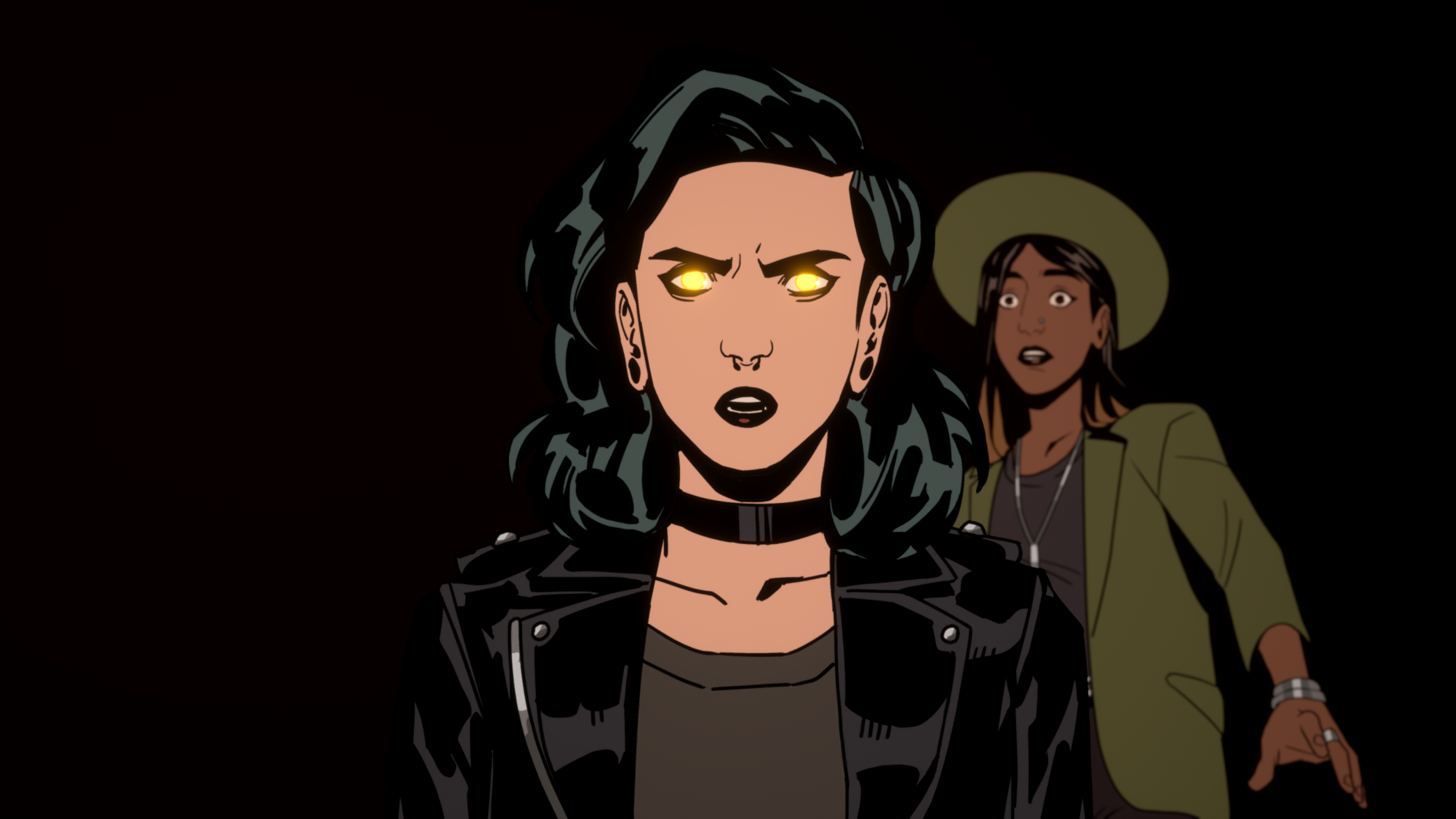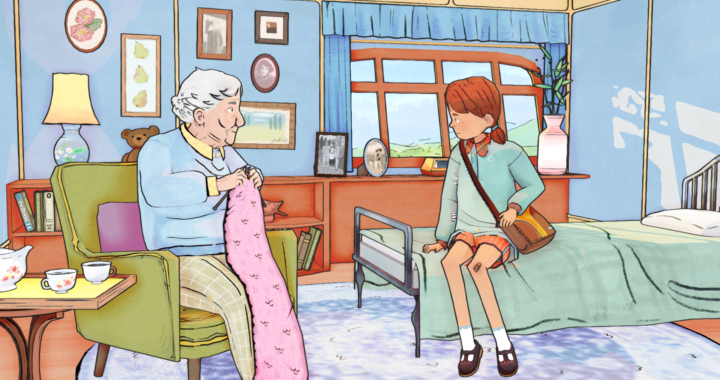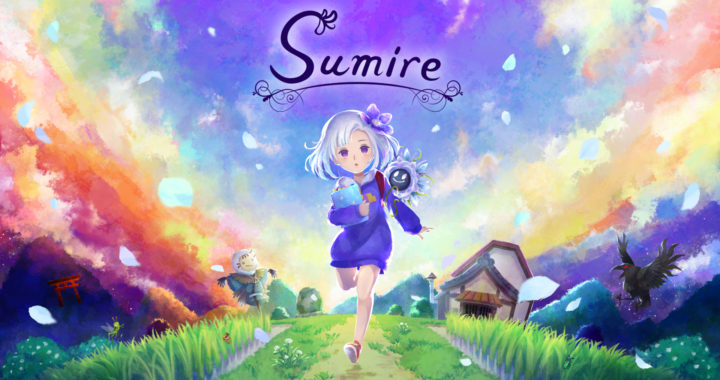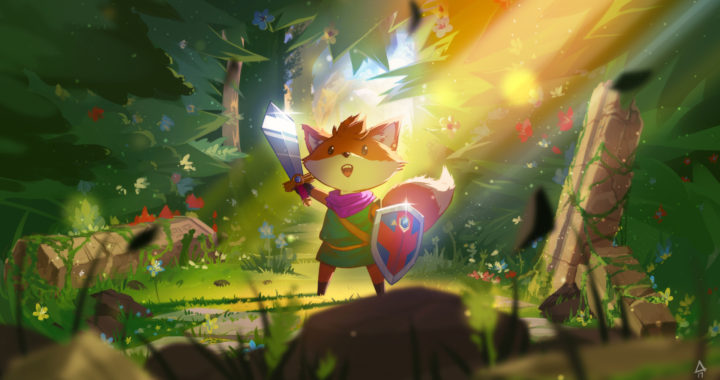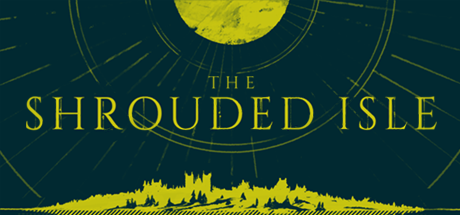
The Shrouded Isle (For Switch!) Review
According to prophecy, in five years Chernabog (the dark Slavic god, not the Fantasia character) will come to save you from this world, but he will only do so if your community is pure. For the next five years you, the high priest, must find and purge the sinners from your village, or be lost.

The Shrouded Isle is a cult management sim by Kitfox Games, developers of the upcoming Boyfriend Dungeon. Originally released August 4th, 2017 for PC and Mac, the game is finding new life on the Switch as of January 17th, 2019. This new version features the Sunken Sins DLC which added additional mechanics and a longer campaign than the original release.
If I had one word to describe this game, it would be “crunchy”. There’s a lot to manage in what appears to be a relatively simple concept at the start. Each year, you have to play through all four seasons, choosing an advisor from each of your five relevant families. Every family is in charge of a certain tenant of your religion: obedience, discipline, ignorance, fervor, and penitence. In theory, the advisor you choose from each house should be strong in whatever tenant their family is responsible for, as each has a virtue that lends itself to a tenant, but this becomes complicated because of two things: proc gen and vices.
All of your villagers are procedurally generated at the start of your five year playthrough, so you may well end up with cultists who don’t share a strength with the house they hail from. On top of that, there are also vices for every virtue, which hurt whatever stat they’re linked to. For example, if you use an advisor with a trait that ties to lacking fervor, your fervor meter will decrease if you don’t have an advisor in play who can boost it.

Vices and virtues have to be figured out as you you play through “inquiries”. You’re only awarded up to two at a time which makes who to choose a bit of a calculated risk in the early portions of the game. By using an advisor, you can inquire about their vice and virtue without having to worry about spending inquiry points, though it will affect their family’s approval rating.This tension makes playing through a season challenging in a way that I mostly found to be fun, but that sometimes left me feeling as though the game had painted me into a corner with no way of getting out.
The strengths of each family aren’t the only things you need to be cognisant of, either. Each family has an approval meter which is impacted by whether or not you use their advisor during the season, which advisors from other houses are used during the season, how you choose to proceed with situations that come up randomly in between seasons, and which house you ultimately choose to make a sacrifice from. Shockingly, even the most devoted households tend to get upset when you decide to murder one of their own to sate the needs of your dark god.

But wait, there’s more! On top of juggling all these other factors, if you make it through enough seasons, additional factors will come into play, piling even more considerations onto this already hefty list. If you’re someone who enjoys management sims, especially ones that are difficult to game, spinning so many plates is probably an exciting prospect. For folks who are newer to the genre (hi, hello) it may seem a bit daunting, which is why I wish there was more of a tutorial system in place, even if it were just an optional one. The opening cutscene of the game introduces you to the basic concept of what you’re supposed to be doing, but once you start, the only real direction is “choose and advisor from each house”.
The game embraces a very “learn as you play” style,and careful reading of each screen is essential to making sure you understand everything going on, which would be fine if each run wasn’t so long. Playing through five years worth of seasons, one by one, along with investigating citizens, settling disputes, and purifying sinners takes a while, so it can be incredibly frustrating to lose progress over a system that wasn’t really explained beyond a silent appearance on screen. The original release was only three years worth of gameplay, but the Switch port and DLC seem to have been made more robust in response to criticism on the game’s length and ability to maintain interest. While this certainly beefed up the stakes, it made it all the more irritating to lose progress. I know a lot of folks don’t like to “have their hands held” during games, but it’d be nice to have the option, especially with something as dense as The Shrouded Isle ends up being.
Though the mechanics of this game are clearly layered and implemented to give each run depth, I can’t say the same for its story elements. When I first started playing, I was excited that they weren’t using any of the Lovecraftian gods that fiction like this usually tries to play with. Given Lovecraft’s problems with extreme racism and poor handling of the “madness” trope, I was relieved to see that his ideas and work weren’t being called on. But after playing the game for a while, that’s unfortunately less true than I’d like it to be.

Chernabog isn’t associated with Lovecraft or cosmic horror, but The Shrouded Isle still uses the trademark tentacle and ocean imagery to elicit that tone whenever the dark god’s presence is making itself known. Even some of the different color schemes you can set for the game are ocean-themed, like “The Shallows” or “The Deeps”, and certain afflictions that appear later in the game are caused by “contagions” that seem cosmic and nature and play with symptoms of mental illness, like hallucinations.
This is disappointing because on top of continuing the proliferation of tropes from a racist, and ableist body of work, The Shrouded Isle had a chance to distinguish itself from other games in the genre by embracing a different god and sticking to that, instead of relying on worn out hints at cosmic horror that a lot of cult fiction has come to rely on. The lore and light story elements could have been so much more compelling had there been a sense that the ramifications of the cult and its god were something different from the usual fare, but Kitfox missed the mark by seemingly deciding to play it safe.
If you’re looking for something to occupy some time on the go and get a taste of a crunchy management sim, The Shrouded Isle will probably do the trick, but I have a hard time seeing the story elements doing anything novel enough to push you towards completing all seven endings aside from completionist impulses. There’s just not enough there to keep interest going, especially once the proc-gen wears thin, and the five year run time is a lot to push through for a supernatural cult story that ultimately feels like every other in the genre.
All images courtesy of Kitfox Games. Code for this review was provided by the publisher.
